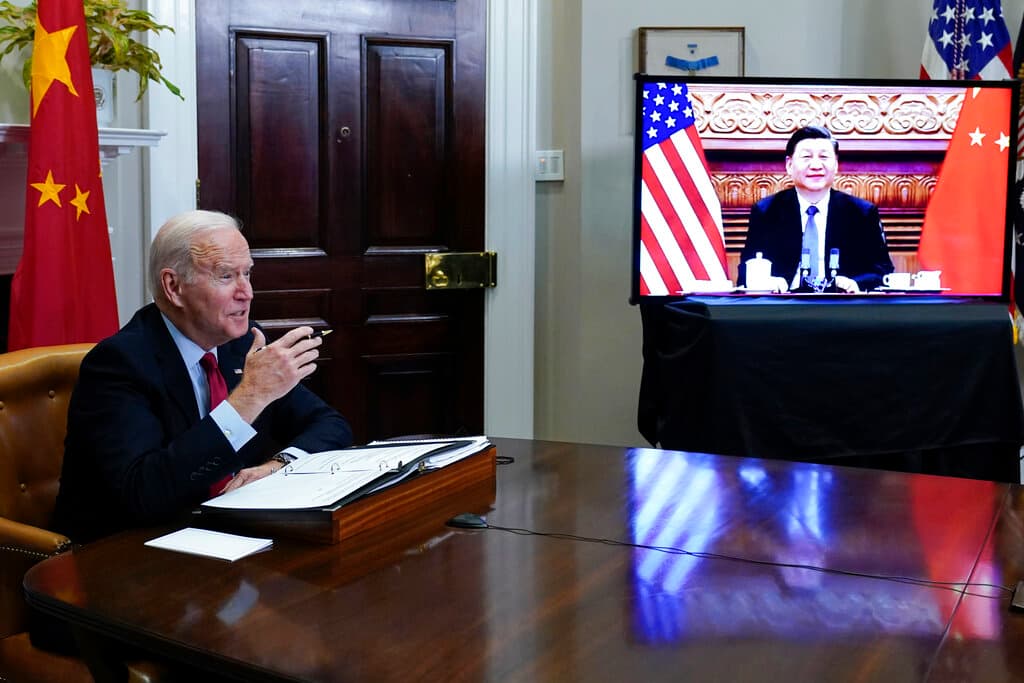What Xi Wants
The thing to remember about Xi Jinping is that he is no nationalist. He doesn’t care about One China. The one thing he cares about is one communism.

While we wait to hear whether Speaker Pelosi makes it in and out of the Republic of China on Taiwan, let us take a moment to re-read a famous editorial on this head. It ran in the Chicago Tribune in May 1971, as the United Nations was preparing to betray Free China, a founding member of the world body, to the communist regime at Beijing, and debunks the communist claims in respect of “One China.”
“Was There Ever One China?” the Tribune asked. It went on to dispute the assumption that “Taiwan and mainland China are historically two parts of the same China.” It reckoned that the notion of two Chinas, being “advanced by Henry Cabot Lodge” and “hinted at by Secretary of State Rogers and President Nixon,” was an “improvised device for protecting Nationalist China.” It offered a devastating reprise going back to the 15th century.
“History,” the editorial noted, “doesn’t count for much when the interests of great powers are in conflict.” It acknowledged that Beijing and Taipei “are both adamantly committed to the concept of One China, each with itself in control.” It marked, though, that “in the interest of historical accuracy, and perhaps future reference, it is worth noting that One China has been the very rare exception rather than the rule.”
It reckoned the mainland could be “credited with sovereignty over Taiwan only from 1683 to 1895 and between 1945 and 1949.” The indigenous inhabitants of Taiwan are of “Malay stock,” the Trib said. When the Dutch and Spanish established settlements in the 16th century, “mainland China was neither disposed nor able to prevent them.” In 1661, remnants of the Ming dynasty fled to Taiwan and “superimposed themselves on the Chinese who had earlier fled from the Ming dynasty.”
Then a “succession” of Manchu emperors “did little to govern Taiwan or develop it,” though there were some punitive expeditions. Mainly, Taiwan “remained a backward country and a haven for pirates.” It was not until the late 19th century, in the face of Japanese expansionism, that the Chinese “set up a provincial government on Taiwan” in a “belated effort to establish control of it.” Taiwan was ceded to Japan in 1895.
The return of Taiwan to China in 1945, the Tribune notes, was “dictated less by the desires of the Taiwanese people, who by then were 90 percent Chinese,” than by the “desire of the Allies to reward Chiang Kai-shek and punish Japan.” After the communist conquest of the mainland, the Kuomintang government fled to Taiwan and only then has a Chinese government “dedicated itself to the development of Taiwan.”
The Tribune noted that it did so with American help and called the results “spectacular.” A nice understatement, we’d say. And we’d add that it had to have been a humiliation and challenge to Mao Zedong and his communist camarilla, who failed to grasp the indivisibility of political and economic liberty. The Tribune ended its editorial by warning that the communists could try to reassert Beijing’s claim to Taiwan.
And then the famous words: “If this happens, it will be well to remember that the claim has little justification in history and that the concept of One China has invariably spelled trouble for Taiwan.” So here we are, 50 years later, with Xi Jinping and Joe Biden as corks on the currents of history. The thing to remember is that Mr. Xi is no nationalist. He doesn’t care about One China. He cares about one communism.
About what does Mr. Biden care? We would like to think it’s the American interest in free market democratic capitalism. There is, though, scant evidence of that in Mr. Biden’s program at home. The other day he asserted that his administration would defend Taiwan in the face of Communist aggression, only to retreat to the posture of “strategic ambiguity.” No wonder all the focus is on Speaker Pelosi.

